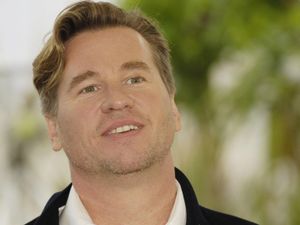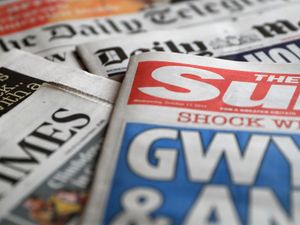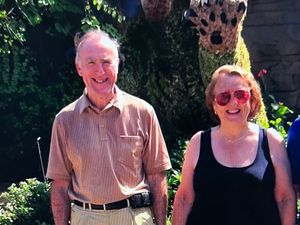BBC annual report shows Gary Lineker is still top earner
The corporation said the talent bill for its top earners has been reduced by 10%.
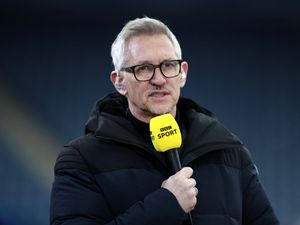
Sports presenter Gary Lineker is still the BBC’s highest earning on-air talent, despite last year agreeing to a pay reduction of around £400,000.
Zoe Ball remains the broadcaster’s second highest paid talent after requesting a pay cut when agreeing a new two-year deal as Radio 2’s breakfast host.
The corporation’s annual report for 2020/21 shows it has slashed 10% from its pay bill for top talent, after some of its biggest names agreed to salary cuts or quit.
It was announced last year that Match Of The Day host Lineker had taken a pay cut, which reduced his pay from £1.75 million to £1.36 million.
The 60-year-old first topped the list for 2017-18 with a pay bracket of £1,750,000 and £1,759,999.
Meanwhile, Ball asked to reduce her pay by 28% to £980,000 to reflect the impact of the coronavirus pandemic.
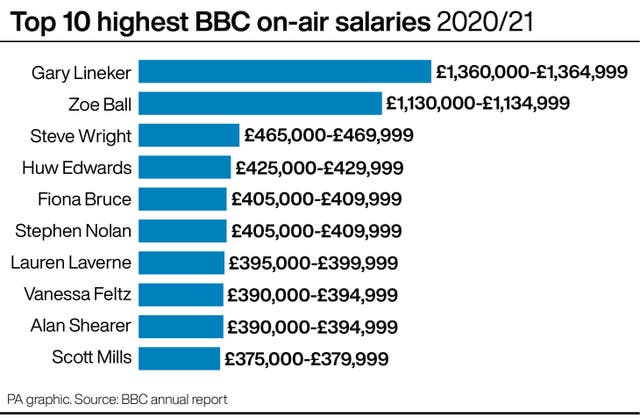
This figure is lower than is listed in the 2020/21 annual report, which shows her earnings to be in the bracket of £1,130,000-£1,134,999 and which represents only a few months of Ball’s new salary deal – including the reduction the presenter requested.
A BBC spokeswoman said: “Zoe Ball is a world-class broadcaster hosting Radio 2’s flagship show and her professionalism and commitment to the Breakfast Show is extraordinary.
“She’s hugely talented and has made the show her own, with many millions of listeners tuning in each morning to the nation’s most listened to Breakfast Show.”
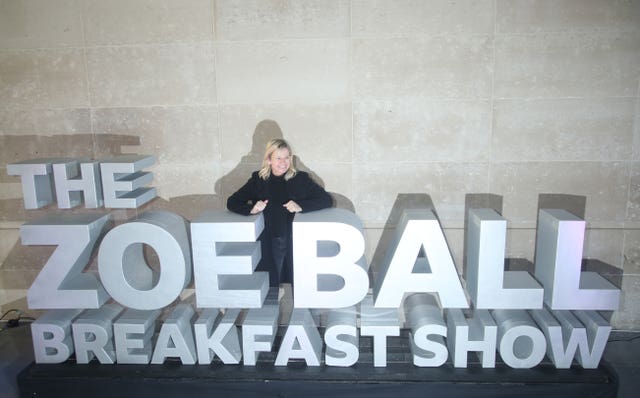
Speaking during the launch of the report, BBC director-general Tim Davie said discussions with top on-air talent over reducing their pay packets had been “mutual and constructive”.
“I am not going to give information on the specifics of the conversations,” he said.
“All I would say is I think everyone recognises the strategy, which is getting value to audiences and, without being funny, most conversations are mutual and constructive.
“Now, clearly as a management team, we want to get more value and we are willing to make tough decisions to that extent.
“I think these conversations have all been constructive, as with Zoe Ball where she came forward and said she wanted to adjust the salary. I think everyone is absolutely with the programme on that one.”
The report also shows that:
– The gender balance of the top 10 highest-paid on-air talent was the same in 2020/21 as 2019/20, with six males and four females.
– Graham Norton is the only person to drop out of the top 10, after being the third-highest earner in 2019/20. He left his Radio 2 Saturday show for Virgin Radio in December last year, and appears on the 2020/21 list with a salary of £155,000-£159,999. Norton’s popular TV chat show is produced by his own So Television and distributed by BBC Studios.
– The one new name in the top 10 is Radio 1 DJ Scott Mills, who is listed with a salary of £375,000-£379,999.
– The total number of staff with salaries above £150,000 has gone down slightly, from 76 in 2019/20 to 72 in 2020/21.
Since 2017, the BBC has been made to publish the names of those earning more than £150,000 each year, a move instigated by the Government.
But pay packets made through BBC Studios, the broadcaster’s commercial arm, are not revealed.
Mr Davie said it was “absolutely appropriate” that the broadcaster did not reveal BBC Studios pay and that he would “defend robustly” the current system
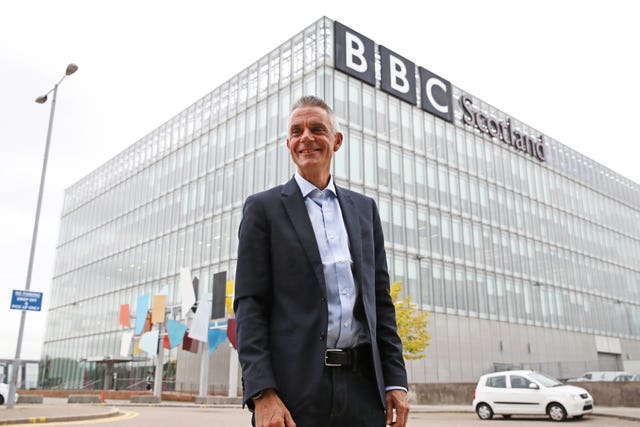
Claudia Winkleman, who has replaced Norton as Radio 2’s Saturday host, does not feature on the list this year, with her salary from hosting Strictly Come Dancing also not included because it is also a BBC Studios production.
Huw Edwards, Fiona Bruce, Vanessa Feltz, Ken Bruce and Emily Maitlis have all seen their salaries reduced, while radio presenters Scott Mills and Greg James have seen increases.
The report says: “Covid-19 has made the on-air environment highly volatile, with delays to productions and the cancellation of live events, especially sport.
“Despite this, we have ensured a stable gender split of 56:44.
“We have demonstrated our ability to deliver improvement since initial publication, with further improvement expected in the forthcoming year as we move towards a 50:50 balance on a gender basis.”
It says that “significant reductions” have been agreed with individuals who appear “towards the very top of this list”.
The report covers the first six months of BBC director-general Tim Davie’s tenure.
Mr Davie said in a statement: “The BBC has delivered outstanding content and value to audiences in extraordinary circumstances this year. I am proud of all we have achieved to inform, educate and entertain the Nation in record numbers during the pandemic.
“The BBC is responding to global competition and pressure on our finances. But, we know we must do much more to ensure licence fee payers across the UK get best value from the BBC, to maintain their trust and provide a service they cannot do without.
“I am absolutely focused on making the reforms we need to ensure the BBC is positioned to offer all audiences the best possible service well into the future.”
Conservative MP Julian Knight, chairman of the Digital, Culture, Media and Sport Committee, said the BBC Studios pay figures being withheld meant the public were only getting “half the picture”
He said: “It’s welcome that some of the BBC’s top-earners have agreed to ‘significant reductions’ in their salaries this year. Yet despite taking a pay cut Gary Lineker is still earning £1.36 million.
“There remains a concerning lack of transparency because a number of top-earning stars are paid through BBC Studios and their salaries don’t appear here. Claudia Winkleman is one of those missing from this list despite her work for Radio 2 and presenting Strictly.
“Without any indication of whether these earnings have gone up or down, licence-fee payers are only getting half the picture on whether they are getting value for money.
“It’s time for the BBC to commit to full transparency on its talent bill and drop the smoke and mirrors approach.”

